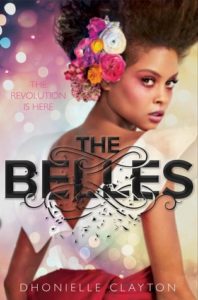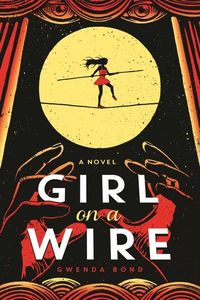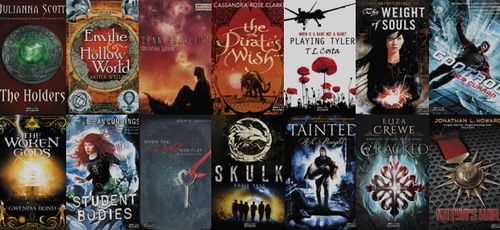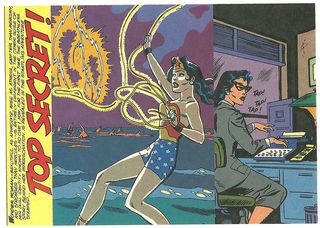Author anxiety: aka When Brains Attack
Obviously anxiety attacks at will, not just authors. But as an author with anxiety, who’s been at this for a while, it seems like many of us are experiencing a renewed spike right now as the pandemic stretches on…and on… (Get vaccinated ASAP, so we can have nice things!)
I’m not surprised that it’s happening to me, to everyone right now, because anxiety love loveloves unpredictability. At its best, the thing you can most predict about publishing is that it’s unpredictable (ugh!) and slow (fertile territory for storytelling writer brains to infest with stories based on the thinnest of evidence). This post was inspired by my agent Kate McKean’s latest Agents & Books newsletter, on how slow(ish) response times, particularly at the moment, do not mean you aren’t a priority or that your agent or editor secretly hates you, it’s just that they also are at wit’s end with a never-ending stack of work and their own anxieties. And that whatever it is probably isn’t an emergency, even if it feels like one to us. A gentle nudge can go a long way.
So, sure, we nod along, that makes sense. But when we’re sitting our desks feeling paralyzed by the many variables that will affect the success of our books — few of which are in our direct control at the best of times — anxiety brain will keep whispering except for meeeee. I am doomed. X or Y hates me or hates my project or both. I wasn’t even given the secret key to this clubhouse and now I’m already locked out.
Or, if you’re an aspiring author, it must just feel even more like tossing your hopes and dreams into the query abyss, or even waiting, hoping someone, anyone, you think will be a good fit for your work will reopen to queries. This talk of how busy everyone is probably makes your anxiety brain spiral in a similar I am doomed. X or Y hates me or hates my project or both. I wasn’t even given the secret key to this clubhouse and now I’m already locked out.
Then there’s the deep craft anxiety… the my book isn’t good actually and everyone is about to find out. The people just pretend to like it/me. The what if I’m not writing fast enough, what if I write too fast? What if this doesn’t sell? What if this is the flop that kills my career? I’m trying a new genre or what-have-you and they are going to think I’m a fraud, but I went there because I’m obsessed with it… (Quick spoiler alert: I know some people will argue with this, but the ONLY thing that can kill your career entirely dead or even mostly dead is YOU. And I mean it: Not even the pandemic. I might be wrong, but I hope I’m not.)
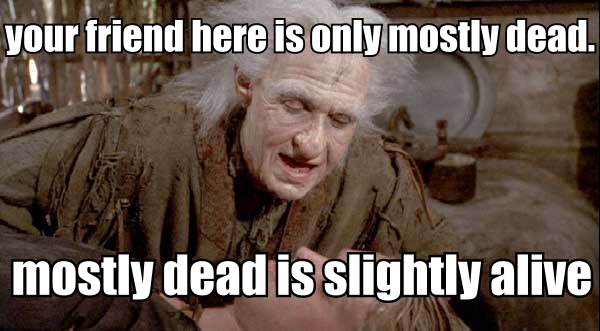
So after Kate’s post I thought I might talk a little about this from the author side, in the hope of helping someone going through author anxiety for the first or four hundredth time. Sometimes it just helps to know you are not the only one who feels this way.
How I learned to LovehateLive With My Professional Anxiety
Notice the similarities in the thought patterns I mentioned? Now there are a thousand specific iterations of this. Everyone’s anxiety works differently. Like I said, I’ve been at this awhile. I’ve talked about my anxiety journey before, but it always bears repeating, because the entire reason I got medicated for anxiety was another author talking about it openly online. (The medication was a game-changer for me, but it does NOT mean I don’t deal with anxiety anymore, alas.)
I was that clueless anxious person my entire life without knowing that’s what it was. I thought anxiety was just panic attacks. I self-diagnosed after years of doing things like mailing a ton of food to my dorm room my first low residency session at Vermont MFA in case I couldn’t make myself go out to eat in the cafeteria (note: my class was seen as somewhat snobby because we were all RIDDLED with anxiety and hung out with each other and then stayed at the B&B nearby so we could have more alone-time — I regret now that I have more perspective and better coping skills how poorly I was able to explain it when a well-meaning graduate advisor pulled me aside at the time to tell me we should gather with the others more…although that said, the fact I will be paying off that degree until I’m dead honestly entitled me to do nothing but class and my room if I chose harumph, and I like to think I was a generous classmate in workshop, etc…. end digression).
I hated talking on the phone, so much that I developed the “Pretend to be a spy” method when I started work at my first job which involved taking calls from and talking to reporters. Eventually I got over my phone phobia. And to an extent my public speaking phobia, because I did it for work, where I was not there for me, but representing an organization.
But what tipped me off that I had anxiety, capital A? I saw a freaking Tumblr post about the symptoms of anxiety two years after my first book was published. And I went… OHHHHH. That is me.
Detective at work, captain obvious
For so many reasons. And I’d started doing author events, which made it more apparent to me. Before any kind of travel I’d get super bitchy and cranky (one way anxiety manifests!). I’d get sweaty palms and feel dizzy and have a giant thing of OTC stomach remedies in my bag (I still travel with a mobile pharmacy, as I now am like an Author Mom at this for others). I was extremely lucky to know and be friends with a lot of people I’d met at that great misfit island, the science fiction convention world, or online through my blog or social media, and so I had people I could trail along behind. Once an event started, I’d be fine. Usually.
Until that fateful DragonCon/Decatur Book Festival overlapping weekend when the first Lois Lane book was just out. DragonCon is enormous, a huge crush of people, and can be overwhelming — it also has an absolutely fabulous programming track for books and put together some of the best panels I’ve been on. It’s always the same weekend as the equally fantastic Decatur Book Festival, which is smaller in theory, but in reality your events there will have much bigger audiences as an author unless you are BIG FAMOUS. And even then, Decatur’s will probably be just as big or bigger.
I had a reading at DragonCon, had to fight through its parade traffic to the subway, and was going to do my first two-author conversation moderated by a friend (thank god) at Decatur. It was hot out. Atlanta in summer hot. The event was in a tent and there were a lot of people there. I took a cold water bottle and started to roll it on my face and the back of my neck because I could feel the panic hitting. The other person involved in the conversation was late (but when she did show up thankfully turned out to be a talker, so I got myself pulled together while she gabbed away, then started to pitch in). I doubt anyone knew this was happening at the time. I went to my GP when I got home under the pretenses of a check-up and asked about anxiety medicine. Lucky for me, the first thing I tried at a low dose works well. (Meds aren’t for everyone and the process of finding them isn’t always that easy.)
Therapy? I’ve always been a believer, but I didn’t actually go for the first time until the pandemic. I started doing teletherapy with a local therapist last year because my routines were off, I wasn’t working well, and I was doing all the things you know you aren’t supposed to do to cope — eating pasta every day, drinking too much wine, skipping yoga, not writing consistently. Therapy was LIFE-CHANGING. As much as going on medication or more.
forced perspective
Why am I telling you these things? I’m fine at events now, enjoy them even, and try to introduce people who are new around. But, even having gone through all this, I’m still susceptible to anxiety patterns.
Yesterday, I sit down, I’m supposed to be doing page proofs and writing my next book which are concrete actions and those always make you feel better. And yet, instead, I start staring at my calendar and fretting about events and COVID and emailing with my (FUCKING FANTASTIC) publicist (who honestly is the best and gave me a pep talk). Even while I was in the spiral, I knew I just needed someone to tell me to calm the eff down. I think the trigger for this was actually the comedown from that amazing felt-normal getaway with writer friends I mentioned in my last post/newsletter.
Absolutely no event is going to make or break my next book or yours, unless it’s some viral thing that can’t be predicted. And that’s in the hands of readers. I also realized that if I’m this frazzled, certainly everyone working on my book and a bunch of others at my publisher feels it times 1,000 million percent (I am not great at math!). In fact, all I can do is support the great work they are doing to get the book to readers and also do my page proofs for the next book and write the one after that. Anxiety brain was not having it yesterday, despite this awareness. It’s not easy. Why?
Why are our brains like this???
… We are storytellers. Our brains naturally tell stories, and they are also over-the-top gifted at worst-case scenarios. They are not good at naturally taking a step back and looking at things calmly. They are good at empathy though (hopefully) and so putting yourself in others’ shoes, thinking outside your own jerky anxiety brain, is always worth it. Particularly in terms of remembering — particularly if you’re a white, able-bodied author like me — the privileges you have and what people who don’t have them might be going through.
Early on my other agent (yes, I have two now, one adults, one kids/YA), Jennifer Laughran, who also gives amazing peeks behind the curtain and advice, said something important to me that goes hand-in-hand with Kate’s there are no publishing emergencies:
It doesn’t matter and nobody cares.
This does not mean your work doesn’t matter and no one cares about it. Stop that, anxiety brain. It simply means whatever you’re fretting about at that particular moment, it’s probably not as big as it feels. (Unless you’ve become publishing’s protagonist of the day or season, in which case, shut up, listen, decide if you did something wrong, and if you did, figure out what you can do to own up to it, make it right if possible, and do better in the future.)
What else is the BFF of anxiety brain? Comparison. And when you’re in that spiral, social media can make it seem impossible to NOT feel like a failure. This is literally NOT a competition; it’s a competitive industry — those are two very different things. I’ve managed to publish a number of books and some were successful and some flopped and I lived to write another day. But I’m genuinely invested in other authors’ careers and successes, and here for their anxieties and failures as well (all a big part of why the Lexington Writer’s Room exists). I am also invested and care about the other people in publishing I work with, who are fantastic, super-stressed out, and often undervalued for incredibly tough jobs.
acceptance is always the last stage, right?
And I still have career anxiety. Nothing is guaranteed except that and that I still have to work my ass off to put dog and cat food in the bowls, but perspective is perspective. Things are going pretty well. I know what I want and I should do my work and trust my people.
If you’re not in that place, maybe your anxiety is telling you a true story. It does occasionally. Although it tends to overplay the negatives. The honest truth is you’ll write your way out of it, one way or another. Figure out what you want and then figure out the steps that start to get you there. Or fuck off and do something that makes you happy for a bit. Write whatever you want. But do not buy into anxiety’s telling you any of that b.s. I started off with about the doom and gloom inevitability of your future.
Getting out of our heads is essential. The pandemic has made that harder, for sure.
Also, just, if you have launched or are launching (*waves*) a book during the pandemic, it sucks. That’s not anxiety talking, that’s reality talking. It’s an unpredictable time and what did we learn about unpredictability and anxiety? Yeahhhhh. It’s okay to feel like some of this is unfair, because it is. But I guess what I’m saying is, we should try to lift ourselves and each other out of the mud as much as we can (I would put an Atreyu gif here except what am I, a monster?). This too shall pass, it’ll be another publishing war story. I really do believe what I said above about careers being a lot more resilient than we give them credit for.
I don’t know how to wrap this up other than to say sometimes your brain will be a jerk. Publishing doesn’t make it better, by its very nature. But you? Take a step back and look at what you have gotten right, what you’ve accomplished. Because the other thing that anxiety does? It erases that. That’s why the stories in our heads are so similar, no matter the stage we’re at as authors.
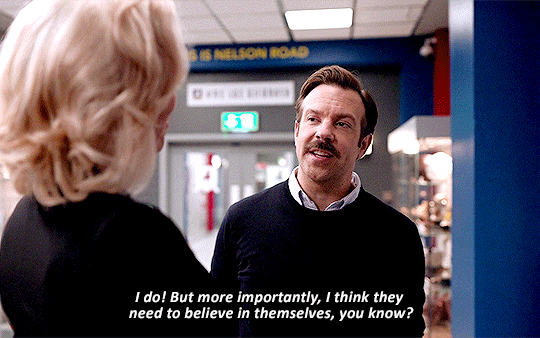
Don’t just own your fears, own your successes. Or do your best to. Or hit me up for a pep talk. I hope this helps. And have some ice cream. You’ve earned it.
I’m going to go do my pass pages and write the next book. Right after lunch.
WAIT: Did I do a whole blog post? Did you read it? Usually, these are newsletters, which you can sign up for below.
Author anxiety: aka When Brains Attack Read More »



